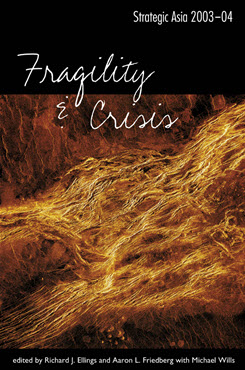China
Sources of Stability in U.S.-China Security Relations
Since the period before the Tiananmen massacre, U.S.-PRC relations have never been as good as they are today. For a combination of international and domestic reasons, the two countries have decided to cooperate on a range of security issues, including North Korea and the war on terror.nThis chapter analyzes the reasons for this cooperation and questions whether it might disappear if certain conditions were to change in the next several years.
PDF – $4.95
Since the period before the Tiananmen massacre, U.S.-PRC relations have never been as good as they are today. For a combination of international and domestic reasons, the two countries have decided to cooperate on a range of security issues, including North Korea and the war on terror. One important reason for the current cooperation is that Beijing and Washington both have managed the Taiwan issue more deftly than in the past. In particular, Washington’s assurance that it does not support Taiwanese independence has allowed an increasingly sophisticated CCP foreign policy elite to be more tolerant of U.S. security policies in other areas, such as Central Asia, Southwest Asia, Southeast Asia, and North Korea. Beijing is also less likely to destabilize bilateral relations through threats, bluster, or coercion against Taiwan, the United States, or its regional allies. This chapter analyzes the reasons for this cooperation and questions whether it might disappear if certain conditions were to change in the next several years.
Strategic Asia
The Strategic Asia annual edited volume incorporates assessments of economic, political, and military trends and focuses on the strategies that drive policy in the region. Learn more about Strategic Asia.


